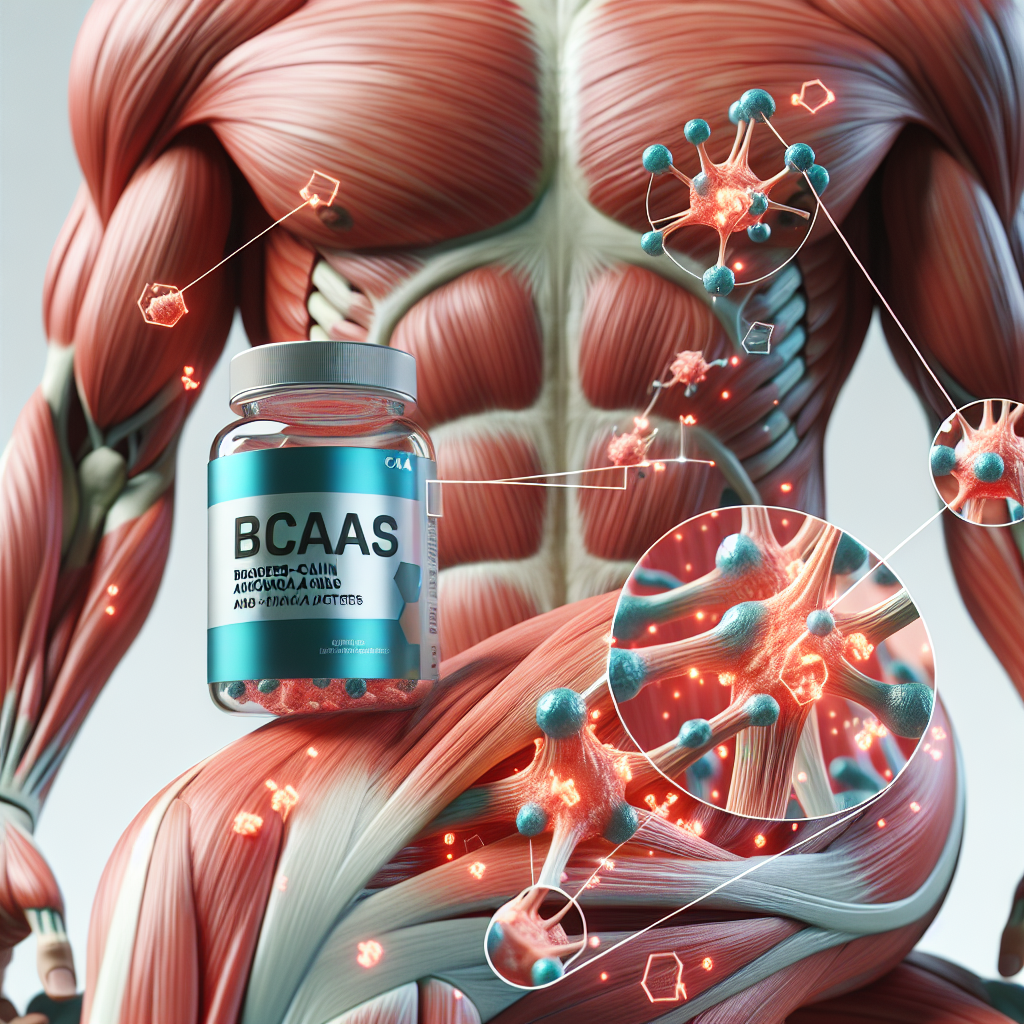
Introduction: Grasping the Concept of BCAAs and Muscle Soreness
Picture this—you've just powered through an intense workout, but the following day you find even basic movements challenging due to muscle soreness. It’s a familiar scenario for many! That’s where BCAAs (Branched-Chain Amino Acids) come into play. This trio of essential amino acids can be your ultimate ally against DOMS (Delayed Onset Muscle Soreness). But what are BCAAs exactly, and why should you, a health-conscious individual from central Europe, care about them? Read on to discover why incorporating BCAAs into your fitness regimen is a smart move.
Overview: Demystifying BCAAs and DOMS
First off, what exactly are BCAAs? They are composed of three essential amino acids—leucine, isoleucine, and valine. "Essential" means our bodies cannot synthesize them, so we need to obtain them through our diet. These amino acids play a vital role in muscle protein synthesis, aiding in the building and repairing of muscle tissues. Now, let's tackle DOMS. DOMS stands for Delayed Onset Muscle Soreness, a phenomenon usually felt 24-48 hours after exercising. This soreness results from minor micro-tears in muscle fibers caused by strenuous physical activity.
Key Ingredients and Advantages
BCAAs comprise:
- Leucine: The powerhouse in muscle protein synthesis, activating the mTOR pathway essential for muscle growth.
- Isoleucine: Supports energy production and regulates blood sugar levels, ensuring everything functions smoothly.
- Valine: Enhances muscle endurance and reduces fatigue, acting as your steadfast workout companion.
But how do these amino acids alleviate DOMS? Research published in the Journal of the International Society of Sports Nutrition suggests that BCAA supplementation considerably reduces muscle damage, subsequently minimizing DOMS. Another study in the Amino Acids journal confirms that taking BCAAs pre- and post-exercise can diminish muscle soreness and expedite recovery.
Best Practices: How to Utilize BCAAs
To maximize the benefits of your BCAA supplement, consider these tips:
- Timing: Consume BCAAs before, during, or right after your workout for optimum results. A dosage of 5 to 10 grams per session is a good starting point.
- Dosage: Even on rest days, you can take BCAAs to support recovery and muscle maintenance. Aim for around 10 grams spread throughout the day.
- Mix it up: Blend BCAA powders into water, shakes, or your morning smoothie. Ensure they dissolve well to avoid any clumps.
Pros and Cons
Advantages include:
- Reduced Muscle Soreness: Scientific studies indicate that BCAAs can significantly lessen the intensity of DOMS.
- Enhanced Muscle Growth: Leucine in BCAAs encourages protein synthesis crucial for repair and growth.
- Improved Endurance: Valine helps combat fatigue, allowing you to push through longer, more intense workouts.
Potential side effects may involve:
- Digestive Issues: High doses might cause stomach discomfort. It's advisable to start with smaller doses and gradually increase.
- Imbalance Risk: Over-reliance on BCAAs without incorporating other essential amino acids could disrupt your amino acid balance.
Comparing BCAAs with Other Supplements
How do BCAAs measure up against other muscle recovery supplements like whey protein and creatine?
- Whey Protein: While it contains all essential amino acids, it may be harder to digest for some. BCAAs, however, are absorbed more quickly.
- Creatine: Ideal for enhancing strength and muscle mass, it doesn’t directly alleviate muscle soreness as BCAAs do. BCAAs are more targeted towards reducing DOMS.
When should you opt for BCAAs? If your main aim is to alleviate muscle soreness and boost recovery quickly without the bulk of a complete protein, BCAAs are your best bet. They’re particularly beneficial during cutting phases when you’re looking to maintain lean muscle mass.
User Testimonials and Expert Insights
Here’s what some users have experienced:
"BCAAs have transformed my recovery game. I no longer fear leg day because the muscle soreness is much more manageable!" - Petra, 32, Vienna
"I started taking BCAAs on my trainer's advice, and the difference is clear. My soreness has decreased, and I'm ready to get back to the gym sooner." - Stefan, 28, Berlin
Experts also weigh in, with nutritionists like Dr. Ilona Szabo from Budapest advocating that BCAAs can be a valuable addition to a balanced fitness diet, especially for those engaging in high-intensity training.
Frequently Asked Questions (FAQ)
Q: Can I take BCAAs on non-workout days?
A: Absolutely! Supplementing with BCAAs on rest days can help preserve muscle mass and accelerate recovery.
Q: Are BCAAs suitable for vegans?
A: While many BCAA products are derived from animal sources, there are plant-based options available. Always read the label or look for vegan-certified supplements.
Q: Is it safe for children and teenagers to take BCAAs?
A: Though BCAAs are generally safe, it’s crucial to consult with a healthcare provider before starting any supplement regimen for children or teenagers.
Conclusion: The Ultimate Takeaway
To wrap it up, BCAAs are a potent tool in your fight against muscle soreness and for enhanced recovery. With solid scientific support and numerous personal success stories, they’re definitely worth adding to your supplement routine. Ready to bid farewell to DOMS? Give BCAAs a try and feel the transformation.
If you found this article insightful, stay a while! Explore more posts on HealthyHerbology.com for tips on supplements, healthy living, and beyond. Happy training!



